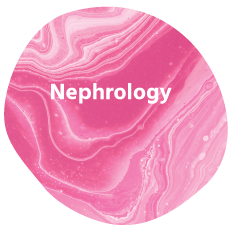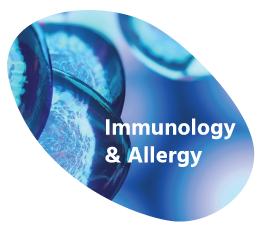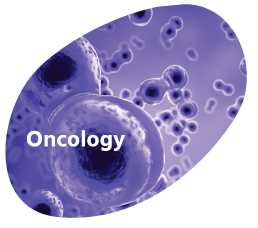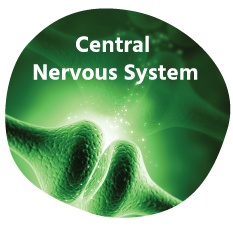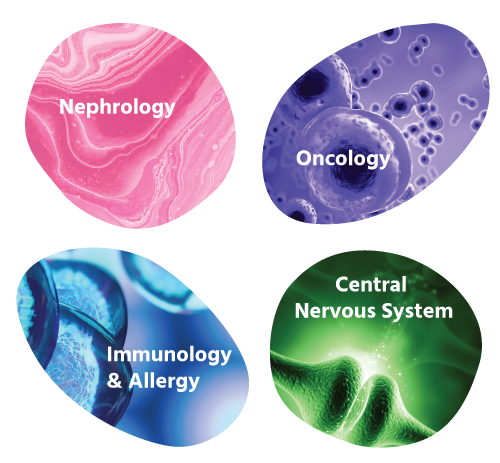
Our Medicines
Kyowa Kirin has an advanced research and development system that displays innovation in drug discovery using cutting-edge biotechnology in antibody engineering technology.
Our Therapeutic Areas
Cutting-edge biotechnology
centered on antibody
engineering technology
Technology-driven Drug
Discovery
Within Kyowa Kirin, our team of experts firmly support and infuse exquisite experience and technologies when it comes to novel drug discoveries. We practice this across all disciplines revolving research, development and manufacturing of biologics, and open innovation. This unique style of drug discovery is what we call technology- driven drug discovery. It focuses on the four key modalities below:
Next Generation Therapeutic Antibodies
Our successfully established technologies include Potelligent® technology and human artificial chromosome (HAC)-based vectors with mice. We apply these molecular therapies in the production of more therapeutic antibodies.
By making the most of our knowledge and experience in protein and antibody engineering, we remain committed to the research and development of next-generation therapeutic antibodies such as immune-activating and tissue-homing antibodies at our laboratories worldwide.

New Type of small molecular drugs
Our approach to small molecule drug discovery involves rational drug discovery design. We use structure-based drug design (SBDD) methods across the drug discovery spectrum, ranging from structural analysis of disease-associated biomolecules (therapeutic target) to design of small molecules. We combine this with an effective process for drug target hunting and seed discovery in our drug production by utilising phenotypic assay for disease state models, chemoinformatics and bioinformatics.

Nucleic acid drugs
At Kyowa Kirin, we actively commit to developing nucleic acid drugs with great potentials as new therapies. Over the years, we have challenged ourselves to construct a drug delivery system that is indispensable for nucleic acid drugs, and have established unique technologies focussing on lipid nanoparticles. Our research laboratories worldwide strive to take this system to the next level by leveraging on research and technology to enhance nucleic acid functions. Our goal is to create and deliver innovative medicines for the drug targets for which a practical treatment approach cannot be established with therapeutic antibodies or small-molecule-drugs. We do this through constant collaboration and teamwork.

Regenerative therapeutics
To broaden our primary research and development areas, Kyowa Kirin have embarked on regenerative medicine as a fourth modality, alongside with small-molecule-drugs, next-generation therapeutic antibodies, and nucleic acid drugs. We aim to utilize novel and multiplex potentials of cells, using our advanced knowledge and experience in genetic engineering and cell analysis.

Our Products
CRYSVITA®
CRYSVITA® (burosumab) is a recombinant fully human monoclonal lgG1 antibody against the phosphaturic hormone fibroblast growth factor 23 (FGF23). By locking excess FGF23 in patients, CRYSVITA® is intended to increase phosphate reabsorption in the kidney and increase the production of vitamin D, which enhances intestinal absorption of phosphate and calcium in patients with X linked hypophosphatemia.

GRAN®
GRAN® (Filgrastim) is a human colony-stimulating factor (G-CSF) produced by genetic recombination technology. It works to selectively increase the count of a type of white blood cell called neutrophil, as well as increase their functional efficacy. This enables a quick recovery from neutropenia occurring as a result of cancer chemotherapy and reduces the risk of infection, allowing for more effective chemotherapy. It also acts to relieve congenital neutropenia or neutropenia occurring after hematopoietic stem-cell transplantation (such as bone-marrow transplants). It received additional approval for application to PBSCT (peripheral blood stem cell transfusion) mobilization as well.
In Asia, Kyowa Kirin has marketed pegfilgrastim as G-LASTA® /Peglasta® /Neulasta® for chemotherapy-induced febrile neutropenia.
Neulasta® is a registered trademark of Amgen Inc.

LUMICEF®
LUMICEF® (brodalumab) is a fully human monoclonal antibody and the only biologic treatment for moderate to severe plaque psoriasis that selectively targets the IL-17 receptor subunit A. It blocks multiple IL-17 cytokines such as IL-17A, IL-17F, heterodimer IL-17A/F, IL-17C and IL-17E which are actively enrolled in the pathogenesis of plaque psoriasis. By blocking the biological activity of these proinflammatory cytokines, LUMICEF® inhibits inflammation and improves the clinical symptoms significantly associated with psoriasis. Reference: Lebwohl M, Strober B, Menter A, et al. Phase 3 studies comparing brodalumab with ustekinumab in psoriasis. N Engl J Med 2015; 373:1318-28.

NESP®
NESP® (darbepoetin alfa) is an erythropoiesis stimulating agent (ESA) with longer-lasting effect than conventional erythropoietin drugs. It is effective for improving renal anaemia with reduced administration frequency.

POTELIGEO®
POTELIGEO® (mogamulizumab-kpkc) is a humanised monoclonal antibody that targets CC chemokine receptor 4 (CCR4), which is frequently expressed on leukemic cells of certain hematologic malignancies including cutaneous T-cell lymphomas (CTCL), such as mycosis fungoides and Sezary syndrome.

REGPARA®
REGPARA® (cinacalcet) is a new class of agent for the treatment of secondary hyperparathyroidism. REGPARA acts on parathyroid calcium receptors directly and suppresses parathyroid hormone secretion, while simultaneously lowering serum calcium and phosphorus levels.

Romiplate®
Romiplate® (romiplostim) is a genetically recombinant protein, stimulates platelet production via stimulation of the thrombopoietin receptors.

Disclaimer: This page features main products from Kyowa Kirin’s portfolio in Asia Pacific, and may not be available in all countries, or may be approved for different indications, in different dosages, or in different strengths. In general, those products are available only by prescription through local healthcare professionals.


